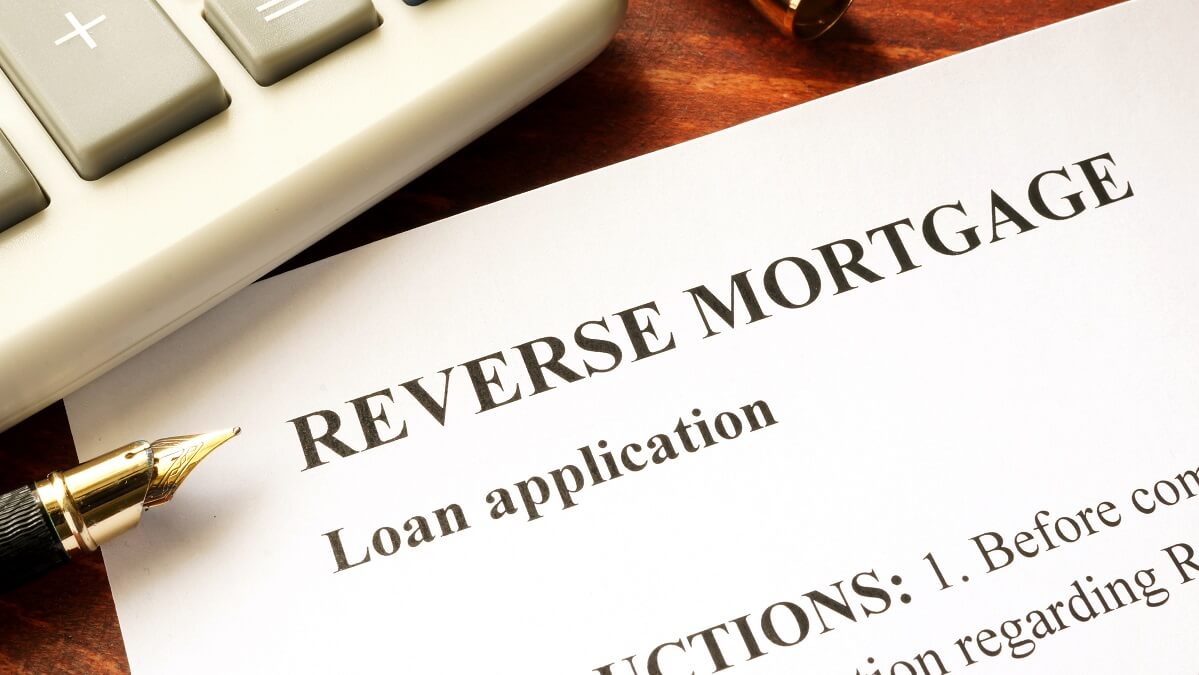If you’re aged over 60 and own your own home, then a reverse mortgage could allow you to borrow money using your equity for security. Here’s how it works.
A reverse mortgage is a type of loan specifically designed for older Australians, who are more likely to be ‘asset rich’ but ‘cash poor’. Meaning they own valuable real estate but may not have many funds in the bank.
The loan allows older people to access part of the value of their home in the form of a loan, without having to sell the home and move out.
How does it work?
A reverse mortgage attracts interest like any other loan, but the difference is the borrower is not required to make regular repayments.
Instead, the principal debt plus any accrued interest and fees are repaid when the home is sold, or is recovered from the estate when the last surviving borrower passes away.
Read: Eight passive income ideas to help you build wealth
This means if you don’t intend to sell your house before you die, you would never have to make a repayment on the loan. You are of course free to make earlier repayments if you wish to.
The loan can be paid either as a lump sum amount, or as a regular payment.
Reverse mortgages are offered through commercial lenders and through the government’s Home Equity Access Scheme.
How much can you get?
There are usually strict rules around how much you can borrow, based on the value of your home and your age.
For example, a person aged 60 may be able to access 15, or even 20 per cent of their home’s value. The exact rates will differ between lenders so it pays to shop around.
Read: New hybrid retirement product promises ‘peace of mind’
Darren Moffatt, founder and managing director of Seniors First, told Forbes a good rule of thumb is to start with the base rate a lender is offering and add 1 per cent for each year you’re older than 60.
“There are fairly strict guidelines in terms of the loan to value ratio (LVR) that borrowers can release,” he said.
“It’s all determined by age and linked to life expectancies.”
What are the benefits of a reverse mortgage?
Obviously, the major benefit of a reverse mortgage is that it allows you to borrow a potentially substantial amount of money and not have to make payments on the loan if you don’t want to.
It also allows you to remain in the home you love and have probably lived in for many years. You don’t have to choose between keeping your home and living a comfortable retirement.
Reverse mortgages are also well-protected against economic downturn because of what’s known as a ‘negative equity guarantee’.
This means that if the value of your property decreases in value to the point that it’s worth less than the loan (also known as having ‘negative equity’), you will never owe more than the home is worth when sold.
Read: Five ways to transform yourself from spender to saver
To qualify for the guarantee, you must fulfill three conditions. You must pay your council rates on time, the property must be insured and all necessary repairs must be made.
Are there any drawbacks to a reverse mortgage?
One of the major drawbacks of a reverse mortgage is that it can impact your eligibility for the Age Pension – depending on what you spend the money on.
If you spend the money on what Centrelink defines as an asset such as a car or boat, then it may affect your pension as it would combine with the cost of your other assets and may exceed the cost limit under the assets test, which could reduce or cancel your pension.
A reverse mortgage constrains your ability to move to a new house if you wish, as you will have less to purchase your next house with once the loan is repaid.
It’s also clearly a problem if leaving an inheritance is important to you, as anything you pass on will be minus the remaining loan amount plus interest.
Do you own your home? Could a reverse mortgage suit you? Let us know in the comments section below.
Disclaimer: All content on YourLifeChoices website is of a general nature and has been prepared without taking into account your objectives, financial situation or needs. It has been prepared with due care but no guarantees are provided for the ongoing accuracy or relevance. Before making a decision based on this information, you should consider its appropriateness in regard to your own circumstances. You should seek professional advice from a financial planner, lawyer or tax agent in relation to any aspects that affect your financial and legal circumstances.

